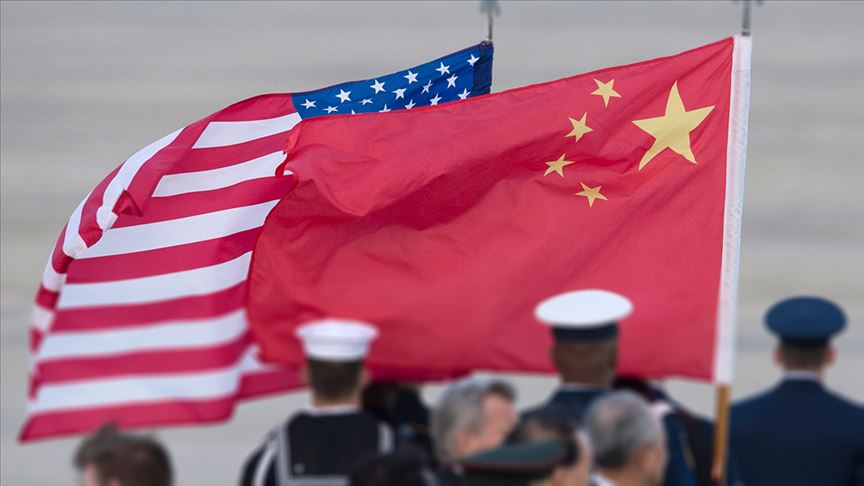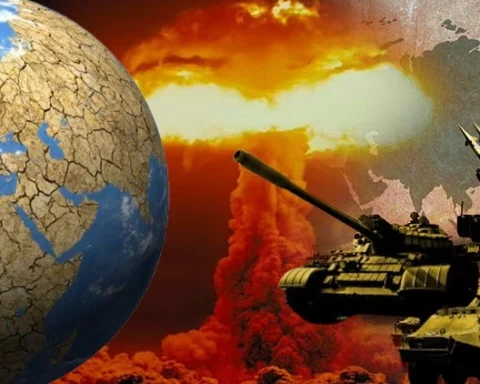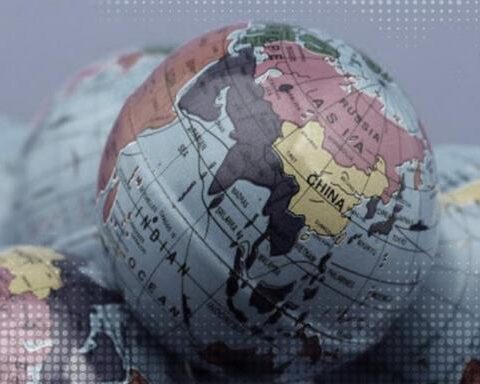Transatlantic angst clouds Europe’s strategic choice.
The economic, military, and philosophical pillars of the post-war world order are in ruins. But through the smoke that rises over the rubble, the geopolitical imperative remains: compete or concede.
That is true on both sides of the Atlantic, though the interpretations vary sharply. Seen from the United States, the era of subsidized hegemony is over. American taxpayers will no longer bear the costs and risks of defending ungrateful, freeloading allies. Nor will they accept a world economic system that hollows out their jobs and society. They pay no further homage to an outdated, elitist set of values that cloaks these burdens in the sanctimonious language of duty. From this point of view, the first weeks of President Donald Trump’s administration have been necessary scene-setting. The real question is the contest with the Chinese Communist Party (CCP).
Seen from Europe, the careless destruction of decades-old certainties spells catastrophe, compounded by bungling and crude theatricality. The US wrote the rules of the post-war world system and grew rich and respected within it. Why disown it? Why tear it down? Why the moronic tantrums, tariffs and threats? If the US has abandoned global moral, economic and strategic leadership, erstwhile allies must diversify. Despite that utterly different interpretation of events, the central question is the same: how to deal with China.
That overlap is not new. Indeed, in the past years, attitudes to China in the US and allies seemed to be converging. The US pressured European allies to shun Huawei technology. Military ties, intelligence-sharing, and soft-power efforts helped build formal and informal coalitions against CCP influence activities, ranging from the now-defunct “17+1” cooperation framework in the eastern half of Europe to British nuclear submarine deals with Australia.
Now all that is in doubt and old taboos are fraying. Lithuania says its gambit towards Taiwan—opening a nearly official embassy in Vilnius—was a mistake. Britain’s military chief, Admiral Sir Tony Radakin, has paid an unannounced visit to Beijing. Spanish Prime Minister Pedro Sánchez met Xi Jinping there and described China as an “essential partner.” The EU leadership and the CCP are jointly championing free trade, and denouncing the disruption caused by Trumpian tergiversation on tariffs.
Superficially, Europe’s China option looks attractive: teach the Americans a lesson and make some money while doing so. But in practice, difficulties abound. Kaja Kallas, the EU’s top diplomat, notes sharply that China is “the key enabler” of Russia’s war in Ukraine. The Trump administration’s mis-steps pale beside China’s ruthlessly mercantilist trade policy, which includes subsidies and other market distortions and the systematic theft of intellectual property, not to mention Orwellian surveillance policies, the ruthless repression of minority rights and the incipient blockade of Taiwan. China’s own policy towards Europe has been increasingly sharp in recent months. Lu Shaye, the CCP’s special envoy, not only accepts Russia’s seizure of Crimea, but has questioned the sovereignty of former Soviet republics such as EU members Latvia, Estonia and Lithuania.
US allies may yearn for an ideal world, in which their sensitivities and interests counted for more in Washington DC, and the time may come when the administration sees their value more clearly. Europeans might also like to think of how more unified and decisive leadership would turn their colossal wealth and rule-setting power into real geopolitical clout. But that does not change the real-world choice right now. Concede in principle Chinese global leadership, with irreversible concessions on trade, political influence, and technology over the coming decades? Or work alongside the United States, however difficult that may be?
In short: those who bemoan “America First” will like “China First” even less.
*Edward Lucas is a Non-resident Senior Fellow and Senior Advisor at the Center for European Policy Analysis (CEPA).
Europe’s Edge is CEPA’s online journal covering critical topics on the foreign policy docket across Europe and North America. All opinions expressed on Europe’s Edge are those of the author alone and may not represent those of the institutions they represent or the Center for European Policy Analysis. CEPA maintains a strict intellectual independence policy across all its projects and publications.






